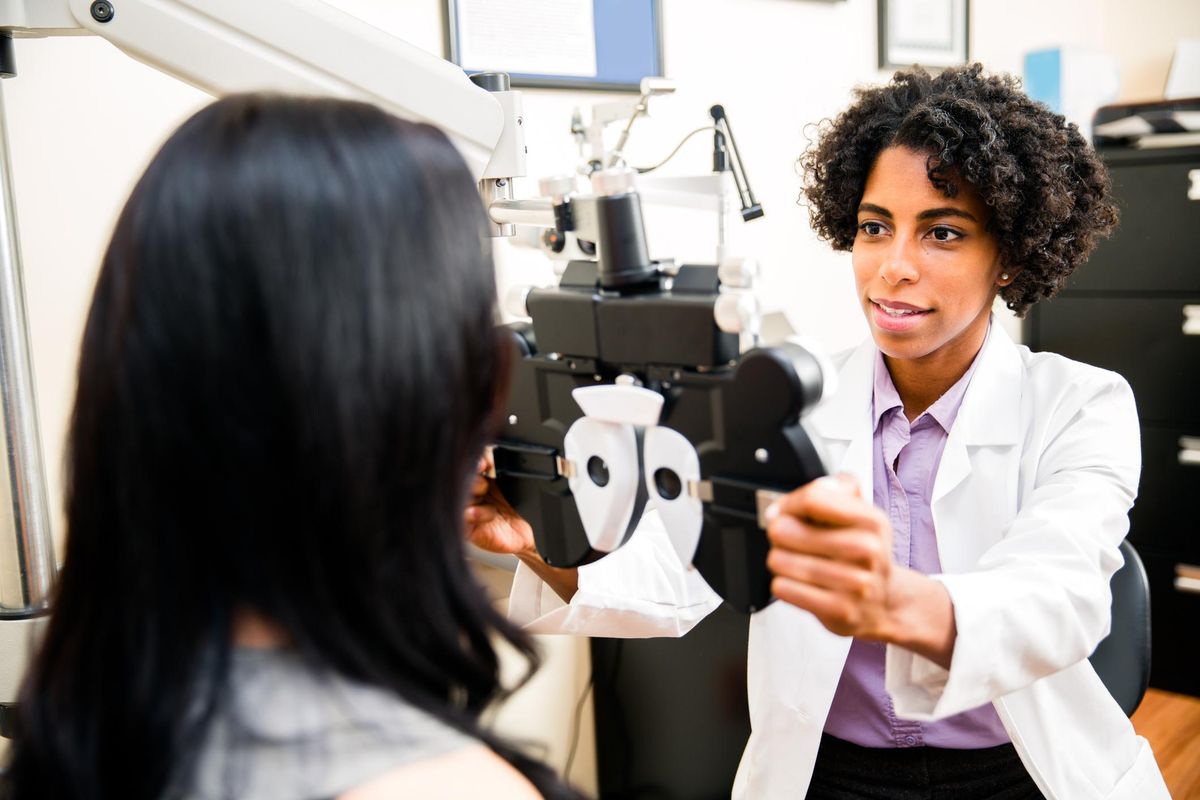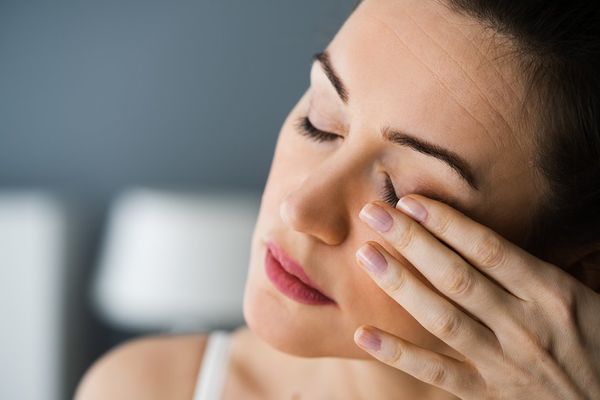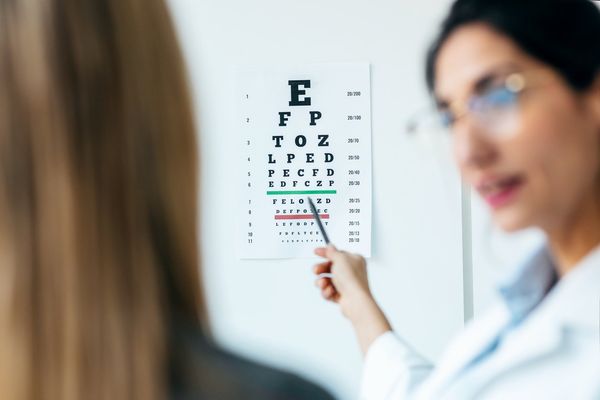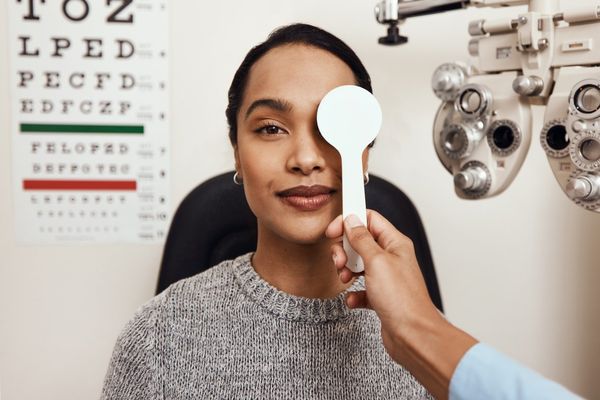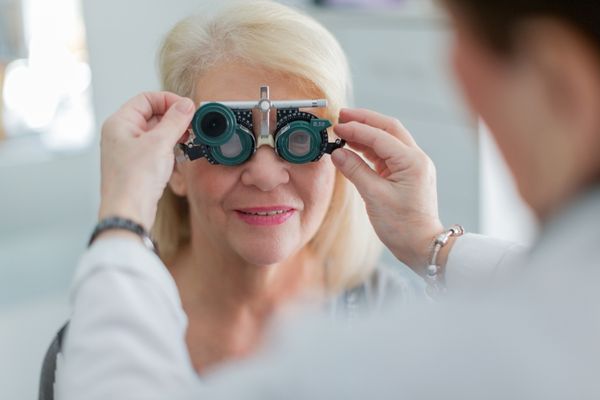January is Glaucoma Awareness Month.
To learn more about this disease, which affects millions of Americans, I reached out to Dr. Marlene R. Moster, a board-certified glaucoma physician at Wills Eye Hospital and a professor of ophthalmology at Sidney Kimmel Medical College at Thomas Jefferson University. Dr. Moster answered my questions via email.
The transcript has been edited for clarity and length.
HealthyWomen: What is glaucoma?
Marlene R. Moster: Glaucoma is a disease that causes blindness. Three million people in the United States have glaucoma, and half are unaware that they have the disease. It is the leading cause of blindness worldwide and unfortunately is often a progressive disease. Early intervention focuses on reduction of the pressure within the eye. It's all about pressure, specifically intraocular pressure (IOP). Too much pressure in the eye squeezes the optic nerve and slowly robs us of our sight. This is most often painless. Medical management succeeds in reducing IOP in a large proportion of patients, however, a smaller percentage may require either laser or surgical intervention to control the disease.
HealthyWomen: How is glaucoma diagnosed?
Marlene R. Moster: Glaucoma is diagnosed with a complete eye exam, which includes testing vision, measuring eye pressure, looking at the eye's drainage angle, examining the optic nerve for damage, testing peripheral vision, taking a picture and measurement of the optic nerve and measuring the thickness of the cornea.
HealthyWomen: Who is at risk of getting glaucoma?
Marlene R. Moster: While there are many subtypes of glaucoma, the biggest risk factor for the most common type of glaucoma (primary open-angle glaucoma) is a family history of the disease. If your parents or siblings were ever diagnosed with glaucoma, it is very important for you to have regular evaluations and testing to monitor the health of your eyes. Additional groups who may be at increased risk are those of African American, Asian or Hispanic descent, people with a history of eye trauma, people with thin central corneas, those taking steroid-based medications and people with autoimmune disorders or poorly controlled diabetes.
Anyone with a higher than normal eye pressure should also be followed over time to monitor for any evidence of glaucomatous damage to the optic nerve. It should be noted that simply having high eye pressure alone does not automatically mean you have glaucoma, but you are at a much higher risk for having the disease.
HealthyWomen: Why is glaucoma more prevalent in African American and Latino populations than with Caucasians?
Marlene R. Moster: The reasons for this are not entirely clear. The increased risk in these populations is thought to be due, in part, to genetic factors and differences in anatomical structure of the optic nerve. A healthy optic nerve is essential for good vision. It is well established that glaucoma is more aggressive in the African American and Latino populations. It presents at a younger age and with more visual loss. Because the visual loss is painless, patients present late in the disease. African Americans are six times more likely to go blind, which is why early diagnosis is essential.
HealthyWomen: Is there anything one can do to lower one's risk?
Marlene R. Moster: The best line of defense is to have a comprehensive, dilated eye exam, especially if you have one or more risk factors, such as increasing age over 40, high eye pressures, a family history of glaucoma, very high or very low blood pressure, extreme nearsightedness or diabetes. Maintaining a healthy lifestyle that includes regular exercise and a nutritious diet is also important.
HealthyWomen: Is it an age-related disease?
Marlene R. Moster: The risk of developing primary open-angle glaucoma does increase with age, particularly after age 60. However, we know that certain populations, particularly those of African American or Afro-Caribbean descent, can begin to show signs of optic nerve injury from glaucoma much earlier in life. While there are forms of glaucoma which can affect infants and children, thankfully these subtypes are fairly rare.
HealthyWomen: How is my overall health related to my risk of developing glaucoma?
Marlene R. Moster: This is an area of active investigation, and we are still learning about how systemic health status affects the health of our eyes with respect to glaucoma. Some studies have shown that those with higher blood pressure, as well as diabetics, can be at an increased risk of glaucoma, while others have considered a higher body mass index (BMI) to possibly be protective against some forms of glaucoma. While the evidence remains mixed, the advice I give to my patients at this time is to continue to take good care of your entire body, with emphasis on a well-balanced diet and regular exercise.
HealthyWomen: How often do I need to get screened for glaucoma?
Marlene R. Moster: The American Academy of Ophthalmology (AAO) recommends that, if you are under 40 with no risk factors, you have a complete eye exam every five to 10 years. If you are older than 40, that frequency increases to once every two to four years, and over age 65 yearly exams are recommended. Once you are screened, depending on your exam and risk factors, your doctor can determine the frequency of required follow-up.
HealthyWomen: What if I don't have vision insurance?
Marlene R. Moster: If this is a concern, check your local hospital for upcoming health fairs and screening programs. Often eye exams are included at these sessions, but keep in mind they do not replace a trained eye specialist. There is a program called EyeCare America sponsored by the AAO, which offers free eye exams for those who qualify. Additionally, if a patient requires glaucoma surgery but is uninsured, underinsured or has limited financial resources, the American Glaucoma Society can facilitate the surgery through their AGS Cares program.
Most large hospital systems also have financial counseling available to help find a cost-effective solution to getting the care you need. Also remember, while the initial cost of an exam may seem expensive, glaucoma does not go away when ignored. The cost of losing your vision is much greater!
HealthyWomen: What would you say to women who are afraid of glaucoma?
Marlene R. Moster: Glaucoma is a frightening word. People often think of blindness. However, as with many chronic diseases, early detection and treatment are the keys to successful management. I have seen many patients who, once they confront this disease, realize they are the ones who are in control, and that is an empowering thing.
Resources:
The American Academy of Ophthalmology
EyeCare America
American Glaucoma Society
AGS Cares
- Glaucoma ›
- A Glaucoma Diagnosis: Looking Beyond Drops for the Best Treatment Options ›
- The Leading Cause of Blindness May Surprise You ›
- Glaucoma 101 - HealthyWomen ›

